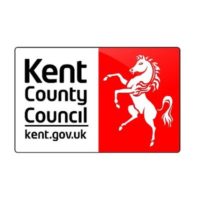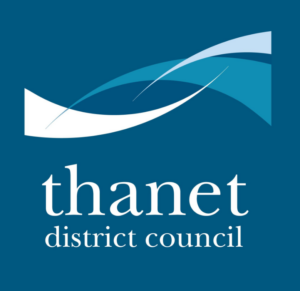- 01843 834160
- [email protected]
- Mon - Fri: 9:00 - 17:00
Big Conversation – there’s still time to have your say on rural transport

Residents are reminded there is still time to have their say in the consultation on what the future of rural transport in Kent could look like.
Since June, public meetings have been held around the county to hear people’s views on rural transport in their area and how it might be maintained or improved in the future.
Those unable to attend are invited to respond to the Big Conversation by completing an online questionnaire or picking up a hard copy from any Kent library. The consultation ends on August 8 2018.
KCC cabinet member for transportation Mike Whiting, said:
“I think this has been a very valuable series of meetings and it has been great to hear the views of the many hundreds who have attended.
“I think the biggest surprise for many was that the county council only controls around 3% of bus services in Kent, with the remaining 97% being run by independent businesses, reporting directly to the government’s traffic commissioner.
“Some people also assume KCC must be providing less in subsidy for the services it does provide – that is not the case. Each year we spend more money on supporting bus journeys in Kent.
“The purpose of The Big Conversation is to ascertain whether we can provide more people in rural areas with a reliable service.”
Since 1985, the operation of bus services has been in the hands of private companies, not public bodies.
Since this change, KCC has had no regulatory powers over where services run and does not have the ability to alter changes made by private companies running the buses – nor do they need to notify KCC.
This is the case right across the UK, though bus services in London were not deregulated and so Transport for London still specify its routes, fares, and the number of services.
Across Kent, 97% of buses are run as a business with KCC able to provide money to those companies to run a further 3% of the county’s services where areas would be left with fewer, or, in some cases, no service at all.
Kent County Council does have a public transport department and a budget which is made up of:
- £7 million for local bus routes
- £650,000 on Kent Karrier contracts, a dial-a-ride service
- £6.5 million on home to school transport for school children
- £23 million on Special Educational Needs home to school transport
- £1.5 million on transportation
- £17 million on free transport for those with an older person’s bus pass
- £10 million on the concessionary travel for school children
The consultation proposes three ideas for schemes that have proven successful elsewhere in the country and asks what the public think of them.
These include creating feeder services which take people to bus stops on routes already covered by commercial services.
Another idea is a bookable and flexible bus service which would cover a specific area, be utilised for specific journeys, for example going to school or to go to a doctor, and could be provided similar to the way community transport schemes are run.
Community transport schemes allow parish councils, charities, and community groups to set up transport schemes to meet the needs of their own communities.
The third idea is a taxi-bus. This could be utilised in areas where demand for public transport is lower but means people can book a bus and pay far less than a taxi ride would cost.
For more information and to take part, visit at www.kent.gov.uk/bigconversation
Why don’t you have any control over what bus operators do?
Since 1985, the operation of bus services has been in the hands of private companies, not public bodies (i.e. KCC).
Under the 1985 Transport Act, a new process was put in place which led to local authority-owned operators and the then national bus company were privatised.
Since this change, we have had no regulatory powers over where services run and does not have the ability to alter changes made by private companies running these bus routes. Bus operators also do not need to notify us of changes they make to routes and timetables.
The private operator purely needs to deliver services that:
- are commercially viable
- carry the most passengers
- deliver a profit
The only obligation we have is that, as a local authority, we are required to consider funding for services which are not commercially viable but are deemed as socially desirable. This is the reason why we allocate a budget of £7m to support such services.
What is the role of the traffic commissioner?
The Traffic Commissioner regulates the safe operation of operators. As long as an operator complies with the registration process, the Traffic Commissioner has no market regulation role over the operator.
When a registered route is in operation, the Traffic Commissioner monitors that the operators are running the route reliably, but it has the powers to intervene if the following issues of non-compliance are brought to their intention:
- failing to operate the route
- running one minute earlier than a published timing point
- running more than five minutes late from published timing point
The Traffic Commissioner for this area is Sarah Bell.
You can find out more about Traffic Commissioners on GOV.uk.
Are bus operators breaking their contracts when they withdraw/change their services?
In Kent, 97% of all services are commercially provided and not subjected to contractual arrangements with us. We have no regulatory power over these routes.
We commission 126 bus contracts. If an operator provides a poor service or changes a service, we will use the contract performance framework that may result in us removing the operator from the contract.
Hasn’t the government given new powers to local authorities to run bus services?
Recent changes by the government made in the Bus Services Act 2017 gave more power to local authorities to allow them to franchise their own services.
While these powers provide the opportunity to franchise local services (i.e. Transport for London), these are only applicable to mayoral combined authorities. Kent County Council is not a mayoral combined authority.
Any franchised operation either must be cost neutral or be funded by the appropriate local authority. Therefore, any local authorities looking to franchise would need to be satisfied that it will not place an undue burden on their current budgets and would have the full support of the public.
There is currently no intention for KCC to become a mayoral combined authority.
Why can’t you subsidise more bus routes?
We have budget pressures, like all local councils, and are unable to subsidise more bus services in their current form.
Our Big Conversation consultation looks at new ideas that could provide a more economically viable public transport service to more residents in areas where either there are no services, or their current service fails to meet their needs.
Are KCC planning to refuse the use of the Older Person/Disabled Bus Pass?
We are not removing the use of the Older Person’s/Disabled Bus Pass and have no intention of changing this policy.
As part of the consultation, we have asked a question about whether residents would be prepared to contribute to a service that could be better than what they currently use.
There are some areas within the county that do not have access to a bus service meaning residents may have to pay a lot more to travel to their destination as they are unable to use their bus pass. Their current bus service may also not meet their needs in terms of frequency or destination.
What is KCC’s definition of ‘rural’?
The definition of ‘rural’ was deemed as those areas that are not served by a commercial service (i.e. Arriva/Stagecoach or smaller operators). Most of these areas are defined as rural because they are located outside of towns within the county. However, we acknowledge that some suburban areas may not have a commercial service and could be included in this category.
Keep up to date with all CommunityAd articles, news and publications by following us on our social media channels:














